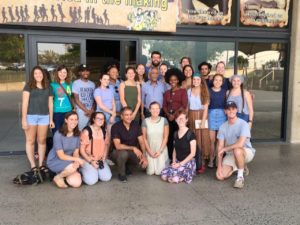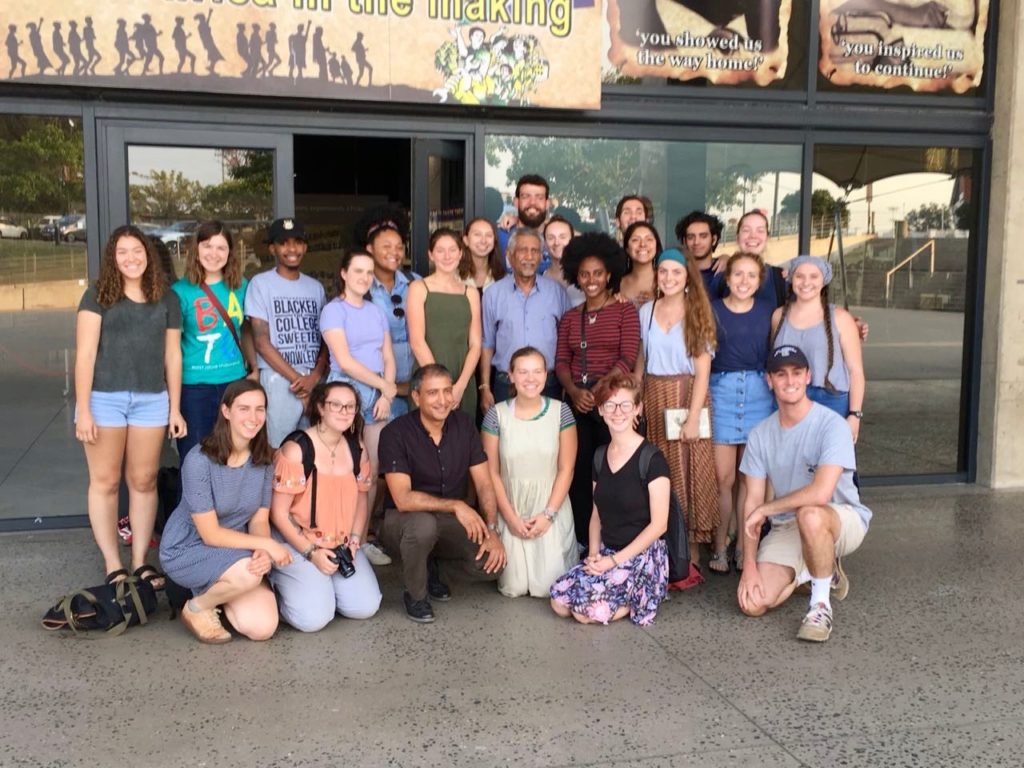“I don’t think you’ll understand the magnitude of your conversation with Mac Maharaj until long afterward.”
As SIT South Africa academic director Imraan Buccus informed us that the ANC activist, 12-year political prisoner on Robben Island, and long-time friend of Nelson Mandela would visit us, his voice carried an elevated tone. “You in many respects are meeting someone as important to the Struggle as Nelson Mandela,” he told us.

When the students of our program met 83-year-old Maharaj at the South Africa in the Making exhibit in Durban’s Moses Mabhida Stadium, we encountered a charming, grandfatherly man who told us anecdotes from his extraordinary life that were peppered with humor and full of dignity. Maharaj pointed us to the example of Nelson Mandela, specifically highlighting how Mandela’s life holds lessons on true leadership.
According to Maharaj, Mandela-style leadership involves not taking away anybody’s sense of personal dignity. Maharaj recounted how, while in prison, Mandela had led fellow prisoners to slow their walking pace after the prison warders had insisted they humiliate themselves by running while crouched over. Maharaj also views Mandela leadership as taking ownership of the consequences of one’s actions. Mandela always accepted burdens placed upon him or induced by himself. That alone is a top quality that can make leaders who previously had no leadership inclination, Maharaj said.
Maharaj worked as Minister of Transport under Mandela, served as spokesperson for former President Jacob Zuma, and taught as faculty of Bennington College in the United States. He spoke with great pride in his country, noting its progress since his involvement in the underground movement and looking with optimism toward its future. He left the SIT students with the encouraging words that democracies give individuals the power to have a voice that inspires political and social change.
History has a way of remembering some names while making less of others, and despite Mac Maharaj’s being less well known on the international stage than Nelson Mandela’s, his story and legacy resonates with those who take the time to hear the story of his walk to freedom.




